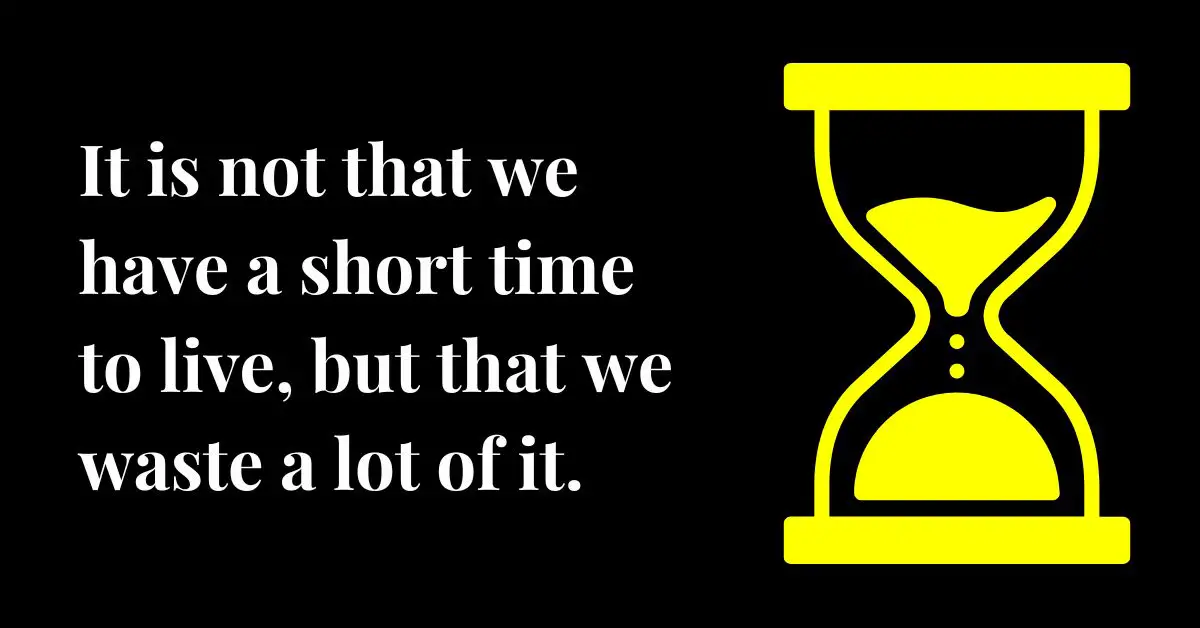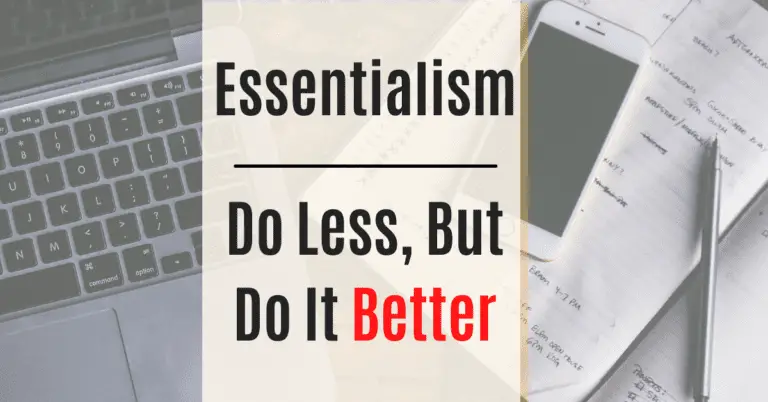It is not that we have a short time to live, but that we waste a lot of it.
Time is not on our side.
Life is a priceless treasure that we are all blessed with, and our time on this planet is limited. It’s essential to remember that every moment is an opportunity to cherish and make the most of this incredible gift. tts, we must strive to embrace each day with a sense of wonder and purpose.
As the great Roman philosopher Seneca once said, “It is not that we have a short time to live, but that we waste a lot of it.” These words are just as relevant today as they were over two thousand years ago when Seneca first penned them.
In this blog post, we’ll explore the Stoic philosophy of time management and how it can help us make the most of the time we have. We’ll examine the concept of “time wasting,” the causes of this behavior, and the Stoic practices we can adopt to overcome it.
Seneca’s quote is a powerful reminder that time is a precious and limited resource that we must use wisely. We are born with a finite amount of time, and once it is spent, it cannot be regained.
Stoics believed that wasting time was not only unproductive but also detrimental to our well-being. They emphasized the importance of living in the present moment and making the most of our time.
In Stoic philosophy, the concept of “kairos” is used to describe the opportune moment or the ‘right time’. It highlights the importance of focusing not on the quantity of time we spend on things, but rather on the quality.
Seneca’s quote is a call to action for all of us to use our time wisely and not take it for granted. It is a reminder that we have the power to choose how we spend our time and that we should make every moment count.
Table of Contents
Examples of poor time management
Wasting time is something that most of us are guilty of at some point in our lives. It can be easy to get distracted by social media, TV shows, or simply procrastination, which can lead us to forget how valuable our time truly is.
Here are some personal examples of how we often waste time in our daily lives:
- Scrolling mindlessly on social media – We have all found ourselves spending hours on social media, scrolling through posts and stories, only to realize that we have wasted a significant portion of our day.
- Watching TV – Binge-watching our favorite TV shows can be an enjoyable way to unwind after a long day, but it’s easy to lose track of time and end up watching far more than we intended.
- Procrastination – Putting off important tasks until the last minute can lead to added stress and anxiety, and it wastes valuable time that could be spent on more productive activities.
The consequences of poor time management
Wasting time can have several negative consequences that can hold us back from achieving our goals and personal growth.
Firstly, it can lead to missed opportunities, which could have been beneficial for our personal or professional lives.
For instance, if we waste time procrastinating or doing unproductive activities instead of focusing on our work, we might miss a deadline or an opportunity to learn a new skill.
Secondly, wasting time can lead to a lack of productivity and progress, which can ultimately affect our success.
If we spend most of our time on meaningless activities or entertainment, we won’t be able to make progress towards our goals, and this can lead to frustration and lack of motivation.
Thirdly, wasting time can have a negative impact on our mental and emotional well-being.
We may feel guilty or regretful about the time we have wasted, which can lead to stress and anxiety. This can affect our overall quality of life and relationships with others.
How to avoid wasting time
Avoiding wasting time can be challenging, especially when there are countless distractions around us.
However, there are practical tips that can help us use our time wisely.
One way to avoid wasting time is to set clear goals and prioritize tasks. This means determining what is most important and focusing on those tasks, rather than getting bogged down in less important activities.
Another way to avoid wasting time is to limit distractions. This could mean turning off notifications on your phone or computer, closing unnecessary tabs or apps, or even finding a quiet space to work. By minimizing distractions, you can increase your focus and productivity.
In addition to these practical tips, applying Stoic principles can help individuals make the most of their time. This includes focusing on what is within your control, rather than worrying about things beyond your control. It also means accepting challenges and setbacks as opportunities for growth, rather than obstacles to success.
By adopting a Stoic mindset, individuals can approach their time with intention and purpose, making the most of each moment.
Conclusion
Seneca’s quote “It is not that we have a short time to live, but that we waste a lot of it” serves as a powerful reminder of the importance of using our time wisely.
In this blog post, we explored the Stoic philosophy’s view on time and the consequences of wasting it. We also discussed personal examples of how we often waste time and how society encourages it.
Finally, we shared practical tips on how to avoid wasting time and how applying Stoic principles can help individuals to make the most of their time.
By embracing the wisdom of Stoic philosophy, we can cultivate a mindful approach to time management and avoid wasting our precious moments.
As Seneca himself believed, our time on earth is not unlimited, and we must make the most of it. Let us use our time to pursue our goals, develop meaningful relationships, and live a fulfilling life.






